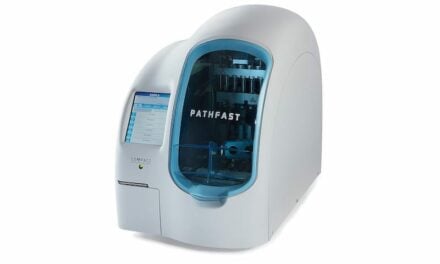Summary: Researchers developed a genetic testing procedure that can identify patients at high risk for cardiovascular diseases. Their study links clonal haematopoiesis—a condition involving mutations in haematopoietic stem cells—with an increased risk of atherosclerotic cardiovascular disease.
Takeaways:
- An integration of genetic testing with ultrasound imaging provides a new way to assess cardiovascular risk by identifying clonal haematopoiesis alongside asymptomatic carotid stenosis.
- The study highlights the significant role of clonal haematopoiesis in cardiovascular health, noting its prevalence in older populations and its association with severe atherosclerotic conditions, which can lead to life-threatening events such as heart attacks and strokes.
- The findings from this research hope to pave the way for personalized medical strategies that tailor patient management based on specific genetic and physiological markers.
Researchers have developed a genetic testing procedure to detect clonal haematopoiesis, which, when used in combination with an ultrasound examination of the carotid artery, allows to identify patients at high cardiovascular risk.
The study from the research team at the Medical University of Vienna was published in the Journal of the American College of Cardiology.
What is Clonal Haematopoiesis
Clonal haematopoiesis is a phenomenon caused by mutations in haematopoietic stem cells and can lead to blood cancer. It can occur in people with normal blood counts, where it is associated with an increased risk of life-threatening atherosclerotic cardiovascular disease.
Recent work in cardiovascular research has shown that clonal haematopoiesis is frequent in the population with increasing prevalence at an older age, detectable in up to 15 percent of individuals over the age of 70. It may lead to malignant blood diseases, but most crucially greatly reduces life expectancy by increasing the risk for atherosclerotic cardiovascular disease. At an advanced stage, atherosclerosis can lead to the blockage of arterial blood vessels, thereby causing heart attacks and strokes.
Team Behind the Clonal Haematopoiesis Discovery
An interdisciplinary team at MedUni Vienna led by Christoph Binder, Robert Kralovics and Roland Jäger from the Clinical Institute of Laboratory Medicine and Matthias Hoke from the Department of Internal Medicine II has now investigated the potential effects of clonal haematopoiesis on patients with proven, but asymptomatic carotid stenosis (atherosclerotic narrowing of the carotid artery).
Further reading: Advanced Cardiovascular POC Testing System Gets FDA Clearance
A New Novel Assay
For this, a novel assay based on high-throughput DNA sequencing was developed to perform targeted genetic testing, in order to identify causative mutations. This method was applied to approximately 1,000 blood samples derived from the ICARAS study (Inflammation and Carotid Artery-Risk for Atherosclerosis Study).
ICARAS represents a prospective cohort study that has been carried out at the Division of Angiology at the Department of Internal Medicine II since 2002, aiming at the identification of risk factors for atherosclerosis and cardiovascular endpoints such as myocardial infarction, stroke, and cardiovascular death.
Detection of Increased Risk Before Symptoms Show
The current study describes sharply increased mortality in patients with simultaneous carotid stenosis and clonal haematopoiesis.
“The targeted design of the genetic testing procedure enabled us to reliably identify patients affected by clonal haematopoiesis,” says lead author Roland Jäger. With the joint detection of clonal haematopoiesis and carotid atherosclerosis, it was possible to discover a combined biomarker that can contribute to a personalized cardiovascular risk profile.
High-risk patients can now be identified at an early stage, allowing for adequate adaptation of therapies and prevention of atherosclerotic disease progression, thereby reducing the risk for strokes and heart attacks.
“With the help of ultrasound-based duplex sonography in combination with the new genetic testing procedure, elevated cardiovascular risk can be detected long before the appearance of disease symptoms,” explains co-lead author Matthias Hoke.
The corresponding authors of the study, Christoph Binder and Robert Kralovics, emphasize that “the results of this study provide the basis for future studies to investigate the role of clonal haematopoiesis in cardiovascular diseases”, with the aim to implement this type of genetic diagnostics in laboratory medicine.





